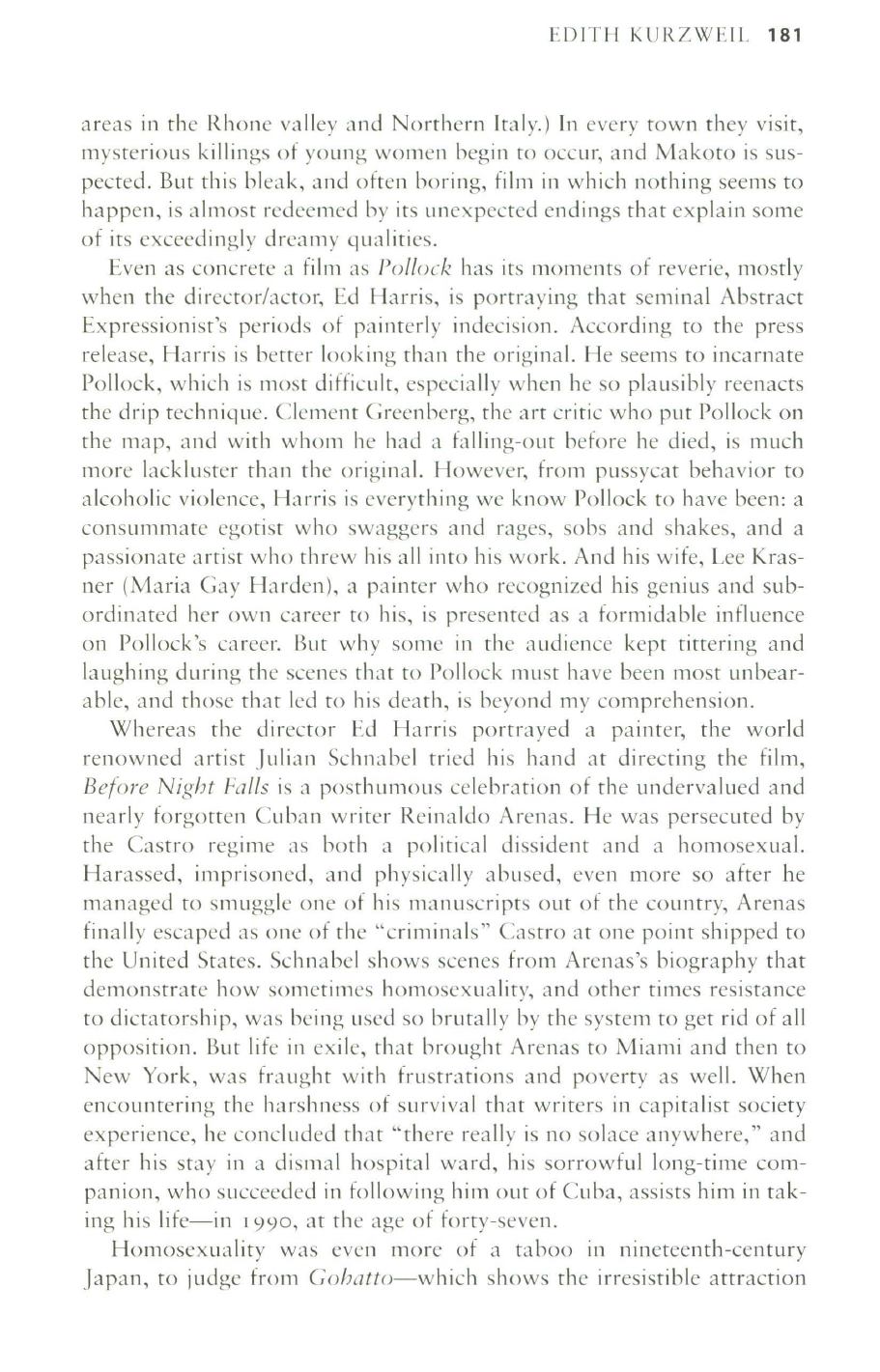
EDITH KURZWEIL
181
areas in the Rhone valley and Northern Italy.) In every town they visit,
mysterious killings of young women begin to occur, and Makoto is sus–
pected. But this bleak, and often boring, film in which nothing seems to
happen, is almost redeemed by its unexpected endings that explain some
of its exceedingly dreamy qualities.
Even as concrete a film as
Pollock
has its moments of reverie, mostly
when the director/actor, Ed Harris, is portraying that seminal Abstract
Expressionist's periods of painterly indecision. According to the press
release, Harris is better looking than the original. He seems to incarnate
Pollock, which is most difficult, especially when he so plausibly reenacts
the drip technique. Clement Creenberg, the art critic who put Pollock on
the map, and with whom he had a falling-out before he died, is much
more lackluster than the original. However, from pussycat behavior to
alcoholic violence, Harris is everything we know Pollock to have been: a
consummate egotist who swaggers and rages, sobs and shakes, and a
passionate artist who threw his all into his work. And his wife, Lee Kras–
ner (Maria Gay Harden), a painter who recognized his genius and sub–
ordinated her own career
to
his, is presented as a formidable influence
on Pollock's career. But why some in the audience kept tittering and
laughing during the scenes that to Pollock must have been most unbear–
able, and those that led
to
his death, is beyond my comprehension.
Whereas the director Ed Harris portrayed a painter, the world
renowned artist Julian Schnabel tried his hand at directing the film,
Before Night Falls
is a posthumous celebration of the undervalued and
nearly forgotten Cuban writer Reinaldo Arenas. He was persecuted by
the Castro regime as both a political dissident and a homosexual.
Ha rassed, imprisoned, a nd ph ysica II y a bused, even more so a fter he
managed
to
smuggle one of his manuscripts out of the country, Arenas
finally escaped as one of the "criminals" Castro at one point shipped to
the United States. Schnabel shows scenes from Arenas's biography that
demonstrate how sometimes homosexuality, and other times resistance
to dictatorship, was being used so brutally by the system to get rid of all
opposition. But life in exile, that brought Arenas to Miami and then to
New York, was fraught with frustrations and poverty as well. When
encountering the harshness of survival that writers in capitalist society
experience, he concluded that "there really is no solace anywhere," and
after his stay in a dismal hospital ward, his sorrowful long-time com–
panion, who succeeded in following him out of Cuba, assists him in tak–
ing his life-in
1990,
at the age of forty-seven.
Homosexuality was even more of a taboo in nineteenth-century
Japan, to judge from Gohatto-which shows the irresistible attraction


